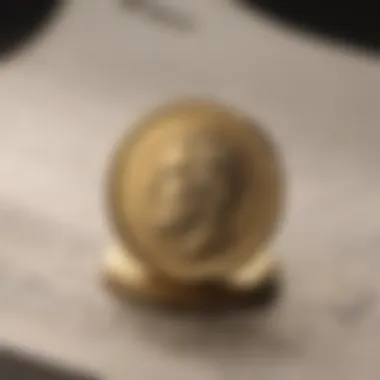Decoding the Impact of Bolivar on US Dollar Exchange Rate


What is cuanto vale un bolivar en dolares:
When delving into the complexities of cuanto vale un bolivar en dolares, it is essential to understand its origins and purpose. The concept of cuanto vale un bolivar en dolares was created by a group of tech-savvy economists aiming to revolutionize cross-border transactions. This digital token serves as a secure medium for exchanging value, bridging gaps in international payments.
In the realm of cuanto vale un bolivar en dolares, there exist numerous tokens, each representing a fraction of the total supply. The total supply of cuanto vale un bolivar en dolares tokens is capped, ensuring scarcity and value retention over time. This scarcity factor plays a significant role in determining the tokenomics of cuanto vale un bolivar en dolares, fostering a sense of trust and stability within the ecosystem.
The main purpose of cuanto vale un bolivar en dolares lies in facilitating fast and cost-effective cross-border transactions. Its utilization extends to remittances, online purchases, and investment opportunities, offering users a versatile financial instrument.
In the cuanto vale un bolivar en dolares ecosystem, various tools complement the token functionality. These tools include secure digital wallets, decentralized exchanges for token swaps, and real-time market trackers, empowering users to navigate the digital asset landscape with ease and confidence.
The decision to swap cuanto vale un bolivar en dolares instead of trading it stems from the token's design and intended use. Swapping implies a direct exchange of tokens at a predetermined ratio, promoting liquidity and efficiency within the ecosystem. On the other hand, trading involves buying and selling tokens on exchanges, which may lead to price fluctuations and longer transaction times.
For individuals looking to buy cuanto vale un bolivar en dolares, the process is straightforward yet requires a basic understanding of cryptocurrency exchanges. By creating an account on a reputable exchange, users can purchase cuanto vale un bolivar en dolares using fiat currency or other cryptocurrencies, safeguarding their investment through secure trading platforms.
Introduction
In the realm of global finance, the understanding of the value of the Venezuelan bolivar against the US dollar holds immense significance. This article delves deep into unraveling the intricacies of this exchange rate, shedding light on the factors that drive the value of the bolivar in the international market. By dissecting historical trends, economic variables, and current market dynamics, readers will embark on an enlightening journey into comprehending the complex world of currency valuation. The introduction paves the way for a deep dive into the nuances of the Bolivar-Dollar exchange rate, offering a comprehensive framework for exploration.
Background of the Venezuelan Bolivar
To grasp the essence of the Bolivar-Dollar exchange rate, it is essential to dive into the historical background of the Venezuelan Bolivar. Originating from a rich history of economic ups and downs, the Bolivar has endured tumultuous fluctuations over the years, shaping its current standing in the global financial landscape. Understanding the history of the Venezuelan Bolivar provides valuable insights into the socio-economic factors that have influenced its value and perception in the international market.
Importance of Exchange Rates
Exchange rates play a pivotal role in the interconnected web of global trade and finance. The significance of exchange rates, particularly between the Bolivar and the US dollar, cannot be overstated. The fluctuations in these rates impact various economic facets, including trade balances, investment decisions, and inflation rates. By delving into the importance of exchange rates, we unravel the fundamental forces that drive currency valuations and underline the crucial role they play in shaping the economic landscape. Exploring the nuances of exchange rates unveils a wealth of information that is essential to grasp the full spectrum of the Bolivar's value in relation to the US dollar.
Historical Trends
In this section, we delve into the pivotal role of historical trends in understanding the value of the Venezuelan bolivar in dollars. Examining historical data provides valuable insights into the patterns and fluctuations of the bolivar-to-dollar exchange rate over time. By tracing back through historical events and economic shifts, analysts and investors can gain a deeper understanding of the factors influencing the currency's value today.
Moreover, historical trends offer a roadmap of past challenges and successes, helping to forecast potential future developments in the bolivar's valuation against the dollar. Understanding the historical context of the bolivar's fluctuations is essential for making informed decisions in the volatile Venezuelan market.


Exploring historical trends allows for a comprehensive analysis of the bolivar's journey against the dollar, highlighting crucial turning points and trends that have shaped its value in the international economic landscape. By studying historical data, researchers can identify correlations between past events and currency performance, enabling more accurate predictions and risk assessments in current market scenarios.
Fluctuations in Bolivar-Dollar Exchange Rate
Impact of Political Events
Political events play a significant role in the fluctuation of the bolivar-to-dollar exchange rate. The instability resulting from political turmoil can cause sharp variations in currency value, impacting trade and investment opportunities. Political uncertainty often leads to market apprehension, driving the bolivar's value to fluctuate unpredictably.
One key characteristic of the impact of political events on the bolivar exchange rate is the immediate reaction of the market to political announcements or upheavals. This rapid response reflects the vulnerability of the bolivar to political instability, making it a popular focal point for analysis in evaluating currency dynamics.
The unique feature of political events is their ability to trigger drastic shifts in the bolivar's value within short time frames. While some fluctuations may present trading opportunities, others pose risks for investors navigating the volatile Venezuelan market.
Hyperinflation Crisis
The hyperinflation crisis in Venezuela has been a defining factor in the bolivar's exchange rate volatility. Hyperinflation negatively impacts the purchasing power of the bolivar, eroding its value against stable currencies like the dollar. The hyperinflationary environment creates significant challenges for businesses and individuals, leading to economic instability.
An essential characteristic of hyperinflation crisis-induced fluctuations is the rapid devaluation of the bolivar, causing uncertainty and economic upheaval. This phenomenon underscores the critical role of economic policy and financial management in stabilizing the currency and mitigating hyperinflationary pressures.
The unique feature of hyperinflation crises lies in their prolonged effects on the bolivar's value, necessitating adaptive financial strategies and risk mitigation approaches for investors operating in the Venezuelan market.
Economic Variables
Inflation Rates
Impact on Exchange Rate
Inflation rates hold significant importance in determining the exchange rate dynamics between Bolivar and the US dollar. Inflation directly impacts the purchasing power of a currency, affecting its value relative to other currencies. High inflation rates erode the value of a currency, leading to depreciation and influencing exchange rates unfavorably. This specific aspect of inflation rates on the exchange rate serves as a critical consideration in analyzing the Bolivar's value in Dollars. Understanding how inflation rates affect currency valuation provides insight into the economic health of a nation and its impact on international trade and investment.
Gross Domestic Product (GDP)
Economic Stability
External Factors


External factors play a crucial role in shaping the value of the Venezuelan bolivar in relation to the US dollar. These factors encompass a range of key elements that significantly influence currency exchange rates and market dynamics. By delving into external factors, we can gain a deeper understanding of the market forces at play and how they impact the value of the bolivar.
International Trade
International trade serves as a cornerstone in the evaluation of the bolivar's value in dollars, with particular emphasis on two pivotal aspects:
Oil Prices
Oil prices exert a profound impact on the Venezuelan economy and, consequently, on the bolivar's exchange rate. Given Venezuela's status as an oil-dependent nation, fluctuations in global oil prices directly affect the country's economic stability and currency valuation. The unique characteristic of oil prices lies in their ability to serve as a primary determinant in shaping Venezuela's fiscal health, making them a pivotal focus in assessing the bolivar's value. While the reliance on oil prices for economic sustenance exhibits advantages in certain contexts, it also exposes the nation to vulnerabilities stemming from fluctuations in the global oil market.
US Economic Policies
The US economic policies wield substantial influence over global economies, including that of Venezuela. By examining the specificities of US economic policies, we can discern their direct correlation with the bolivar's valuation in the international paradigm. A key characteristic of US economic policies lies in their role as a significant driver of economic trends and market behaviors, thus rendering them a critical consideration in assessing the bolivar's value. However, while leveraging US economic policies can offer benefits in certain scenarios, they also pose inherent risks and challenges that impact the bolivar's exchange rate.
Political Climate
The political climate within Venezuela exerts a profound impact on the bolivar's standing in the global currency market, underscored by two pivotal factors:
Government Stability
Government stability serves as a linchpin in determining the economic trajectory of Venezuela and consequently influences the bolivar's valuation. The key characteristic of government stability lies in its ability to instill investor confidence and foster economic growth, rendering it a pertinent focus in evaluating the bolivar's value. Nevertheless, while government stability offers advantages in bolstering the nation's financial standing, it also harbors potential drawbacks related to political turbulence and policy uncertainties that can affect the bolivar's exchange rate.
Corruption Levels
Corruption levels present an additional layer of complexity in assessing the bolivar's value, with profound implications for the country's economic stability. Highlighting the key characteristic of corruption levels unveils their detrimental impact on Venezuela's financial integrity and the bolivar's standing in the international currency market. While corruption levels can provide a nuanced understanding of the challenges facing the nation, they also pose significant disadvantages in hampering economic growth and distorting the bolivar's exchange rate.
Current Market Analysis
In this article, an in-depth look at the current market analysis is paramount to understanding the dynamics of the Venezuelan bolivar against the US dollar. The fluctuating economic landscape, especially in the aftermath of the COVID-19 pandemic, has significantly impacted the currency's value in the global market. By exploring the current market analysis, readers can discern the recent trends, policies, and forecasts that shape the bolivar's standing.
Impact of COVID-


Pandemic Effects on Currency Value
The COVID-19 pandemic has unleashed a cascade of effects on the currency value of the Venezuelan bolivar as it navigates through turbulent economic waters. The unprecedented lockdowns and disruptions in global trade have heightened market volatility, leading to drastic fluctuations in exchange rates. This specific aspect sheds light on how the pandemic's economic repercussions have directly influenced the bolivar's worth against the US dollar. Understanding the pandemic effects on currency value is crucial in comprehending the significant role external shocks play in reshaping currency valuations. Despite the challenges posed by the pandemic, it offers a unique vantage point to gauge the bolivar's resilience amidst adversity.
Recent Developments
Economic Policies
Delving into the realm of economic policies provides key insights into the recent developments steering the course of the Venezuelan bolivar's value in dollars. The government's fiscal and monetary measures, aimed at stabilizing the economy and boosting investor confidence, have a substantial impact on the currency exchange rate. By dissecting the nuances of economic policies, readers can grasp the intricacies of decision-making processes that influence the bolivar's performance. Examining the effectiveness and implications of these policies offers a holistic view of the challenges and opportunities in the Venezuelan currency market.
Exchange Rate Forecasts
Anticipating future exchange rate trends is essential for investors and stakeholders seeking to navigate the volatile terrain of currency markets. Exchange rate forecasts form a pivotal aspect of recent developments, offering a glimpse into the potential trajectory of the bolivar in relation to the US dollar. Understanding the methodologies and assumptions behind these forecasts equips readers with the foresight to make informed decisions in an ever-evolving market environment. Analyzing the unique features of exchange rate forecasts provides a comprehensive outlook on the factors influencing the bolivar's value, thus empowering investors to adapt strategically to market conditions.
Implications for Investors
Implications for Investors delves into the crucial elements that play a pivotal role in shaping investment decisions relating to the Venezuelan bolivar and the US dollar. In this section, readers are provided with a comprehensive understanding of the risks and opportunities associated with investing in this volatile market. By discussing specific elements such as risk assessment, market trends, and economic indicators, investors can make well-informed decisions tailored to their financial goals and risk appetite.
Risk Assessment
- Volatility Considerations:
Volatility Considerations:
Volatility Considerations are paramount when assessing the potential risks and rewards of investing in the Venezuelan bolivar to US dollar exchange. The key characteristic of Volatility Considerations lies in its ability to reflect the fluctuations and uncertainties inherent in the currency market. This aspect is crucial for investors as it enables them to anticipate and adapt to sudden changes in valuation, thus mitigating potential financial losses. While volatility poses risks, it also presents opportunities for skilled investors to capitalize on price fluctuations and generate significant returns.
- Diversification Strategies:
Diversification Strategies:
Diversification Strategies serve as a fundamental approach for mitigating risk and maximizing returns in the context of bolivar-dollar investments. The key characteristic of Diversification Strategies lies in their ability to spread investments across various asset classes and currencies, reducing the impact of adverse market movements on overall portfolio performance. By diversifying across different sectors and currencies, investors can enhance their chances of generating stable returns while minimizing exposure to concentrated risks. However, diversification also requires careful planning and analysis to ensure optimal allocation of resources and strategic risk management.
Opportunities and Challenges
- Emerging Markets Investment:
Emerging Markets Investment:
Emerging Markets Investment holds significant promise for investors seeking to explore new frontiers and capitalize on growth opportunities. The key characteristic of Emerging Markets Investment lies in its potential to offer high returns due to rapid economic development, resource abundance, and demographic advantages. By including emerging markets in their investment portfolio, investors can diversify risk, access untapped markets, and benefit from the dynamic landscapes of developing economies. However, investing in emerging markets also presents challenges such as political instability, currency fluctuations, and regulatory uncertainties, requiring a thorough risk assessment and strategic approach to yield optimal outcomes.







